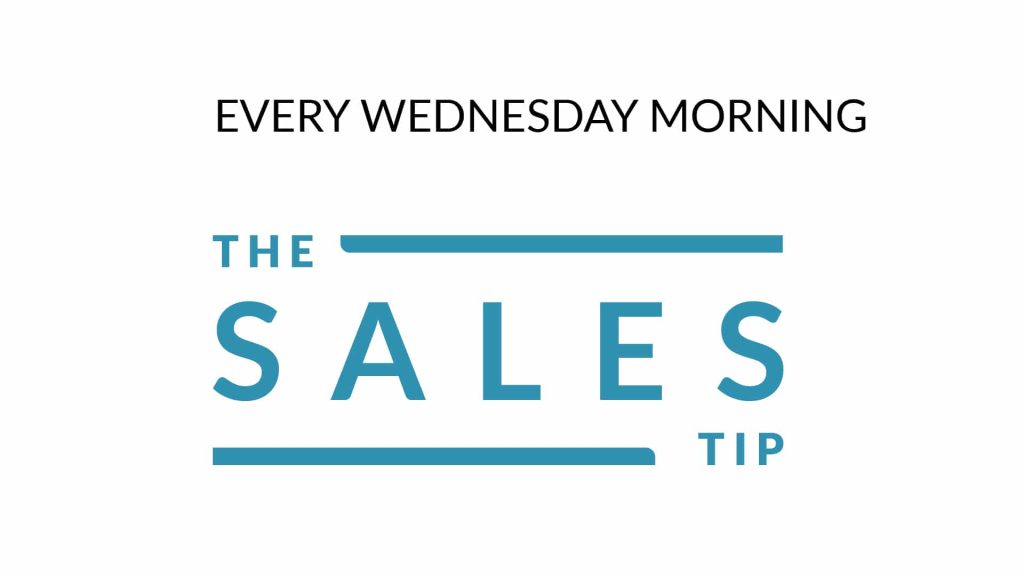Every week, I put out a new blog and video like this one. I’d like you to hit subscribe and read my book, A Mind For Sales. I guarantee that your mindset will heavily impact how you sell and your results.
In this post, I’m going to share how to overcome a sales objection. I’ve got 10 strategies that you can run with right away. Believe me, it all starts with having a mind for sales.
1. Relax!
This is the first thing you can do, and you must! Too many times, people hear an objection and automatically freak out. Right away, they don’t know where to go, and they shut down. When you’re not relaxed, it’s amazing how much you don’t hear. When you’re tense, you don’t listen well and you quickly rush to judgment.
2. Be Prepared.
This means that you know in advance what objections you might hear. Being prepared is just one of the ways you can do number one – be relaxed. Write down all of the objections that you may hear before you go into any sales call. I’m not saying this from a negative standpoint, but actually from a positive standpoint. You’re simply writing down all the objections that could happen. In addition, I want you to write down all your possible solutions and possible ideas for those objections. Now, you can’t expect to get this perfect because you really don’t know until you hear the objection in the exact context in which it’s shared. You just want to be thinking how you might handle various objections as they arise.
3. Restate As You Heard It.
Now, do not restate the objection word for word. That’s what a parakeet does. You simply want to repeat it as you heard it, as you interpreted it. This is your opportunity to take that objection and frame it into your own words. This is your chance to start owning it.
By doing this, you’re getting the customer to start thinking about their objection. I always come back and restate as I heard it. Yes, that means you can alter it slightly; however, don’t change it too much, but alter just a few words. For instance, the customer says your price is too high. You might come back and ask them to help you understand what or why they feel your price is too high.
4. Question the Objection You See as You Restate How You Heard it.
Just because somebody says an objection doesn’t mean they really know what they’re talking about. Therefore, immediately go back and ask them a question to get them to explain, clarify and talk about it more. Most likely, it’s not the initial objection that they’re objecting to, but rather, something else leading up to it. That takes us to our next strategy, number five.
5. Know the Background
You know the background by understanding the framework of where the customer is coming from. Where are they at right now? How did they get here? The more I know, the better. This is why from a prospecting standpoint, you must do your homework beforehand, because the more you know about their background, the better off you’re going to be in terms of understanding where they’re coming from with their objection.
6. Tie the Objection to the Need.
The more background work that you do, the more insight you have about the person and therefore, the more you know what their needs are. Then, when an objection is thrown at you, you can tie it to their need. When the customer says your price is too high, you can say, “You know, you were mentioning that this over here was costing you more money. Is that still the case?” That is how you can tie it all back to the need that you hear or see. This is how you help them understand a solution to their real objection.
7. Defer the Response
What do I mean by this? There are times when you hear an objection and can easily go ahead and question it. The background that you have on the customer you’re entitled to need in order to help them; however, sometimes it’s best to hold onto that information for a moment.
Here are a few things that might come into play. You could sit there and just give them the quick answer, but that doesn’t work. An example of this is when a customer calls up and asks you to give them a quick price quote, but you have no idea who his customers are. This is where you defer the response. You don’t give them a quick price quote, because you don’t know enough about them. Instead, your response should be, “Hey, let me ask you some questions, because I don’t want to set you up with something that’s not right for you.” In this instance, it’s okay to go ahead and defer the response.
8. Clarify, Clarify
After you have tied the customer’s objection back to their need and begin asking questions, you have to ensure that they really understand the solution you put out there. For example, you might sit there discussing price. They say the price is too high, so you sit there and say, “Well, you mentioned that you needed to get this in place so you can save money over here.” That is getting them to clarify. You see, I’m getting them to clarify. This takes us to number nine.
9. Gain Understanding
By responding to an objection, all you really know is that you heard it. Having an understanding is a different story. Did you really understand it? So come back and ask a question to help gain understanding. Ask the customer a question in terms of helping you answer their objection. How do you see where this is going to fit into the big picture?
Too many salespeople fail to understand objections, because they’re afraid. They’re afraid the customer won’t buy into it and they run past it. No, no. You want to make sure that you gain complete understanding.
10. Know the Value of the Objection.
Sometimes customers will throw out an objection that is really so trivial; it’s no big deal. They might say that can’t handle that size or quantity. The objection’s value then has two weights to it – the weight on the customer and the weight on you. Not only do I want to understand the weight to the customer, but also the weight to me.
In other words, the customer says there’s no way they could handle that much inventory at one time. You see, the weight to the customer might be what they value. Is it because they don’t want to spend the money? Is it because they don’t have space? Is it because of some other issue? You see, it’s crucial to understand the value of the objection. You have to try to understand. They might not want that much quantity for a variety of reasons. It might be because of production.
When you understand the value on both sides, you can begin to understand how you should handle the objection. Don’t freak out when you hear an objection. You have nothing to run from. Face it. Head on. Relax, and be prepared.
Copyright 2020, Mark Hunter “The Sales Hunter” Sales Motivation Blog. Mark Hunter is the author of A Mind for Sales and High-Profit Prospecting: Powerful Strategies to Find the Best Leads and Drive Breakthrough Sales Results.












